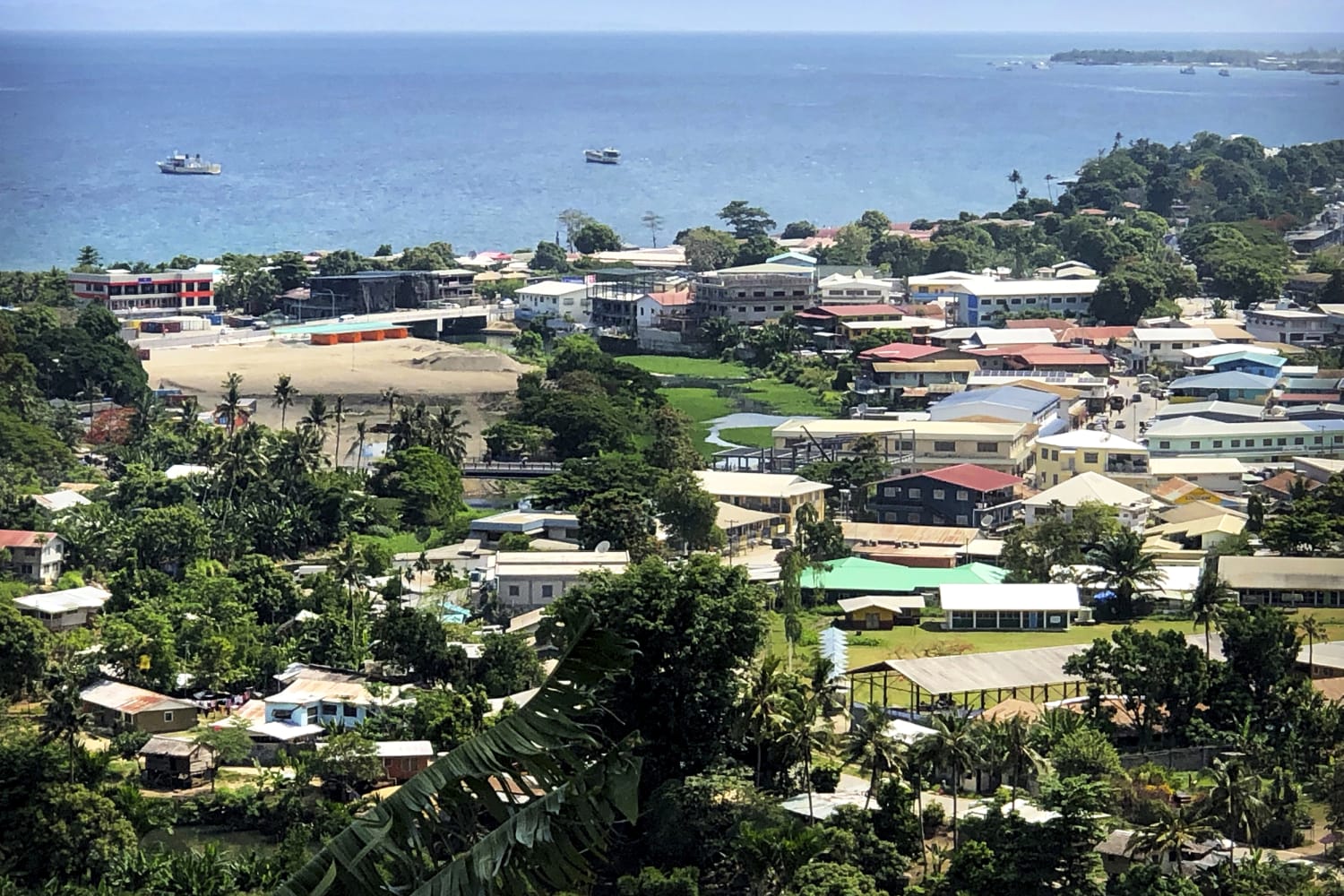[ad_1]

WELLINGTON, New Zealand — The United States opened an embassy in the Solomon Islands on Thursday in its latest move to counter China’s push into the Pacific.
The embassy in the capital, Honiara, is starting small, with a chargé d’affaires, a couple of State Department staff and a handful of local employees. The U.S. previously operated an embassy in the Solomon Islands for five years before closing it in 1993 as part of a global reduction in diplomatic posts after the end of the Cold War.
But China’s bold moves in the region have the U.S. seeking to increase its engagement in a number of ways, such as by donating Covid-19 vaccines, bringing back Peace Corps volunteers to several island nations, and investing in forestry and tourism projects.
“The opening of the embassy builds on our efforts not only to place more diplomatic personnel throughout the region, but also to engage further with our Pacific neighbors, connect United States programs and resources with needs on the ground, and build people-to-people ties,” Secretary of State Antony Blinken said in a statement.
The opening comes as Fiji’s new leader, Prime Minister Sitiveni Rabuka, appears to be reassessing some aspects of his nation’s engagement with China. Rabuka told The Fiji Times last week he planned to end a police training and exchange agreement with China.
The U.S. State Department notified lawmakers early last year that China’s growing influence in the region made reopening the Solomon Islands embassy a priority. Since then, the Solomons has signed a security pact with China, raising fears of a military buildup in the region, and the U.S. has countered by sending several high-level delegations.
The Solomon Islands switched allegiance from the self-ruled island of Taiwan to Beijing in 2019, threatening close ties with the U.S. that date to World War II.
“We are seeing this bond weaken as the People’s Republic of China aggressively seeks to engage Solomon Islands’ political and business elites, utilizing a familiar pattern of extravagant promises, prospective costly infrastructure loans, and potentially dangerous debt levels,” the department said in a December notice to Congress that was obtained by The Associated Press.
[ad_2]
Source link
